Overturning an apex court judgement of 2018, the Supreme Court on Thursday ruled that stay orders passed by a lower court or high court in civil and criminal cases cannot stand vacated automatically after six months, and said such a direction "virtually amounts to judicial legislation".
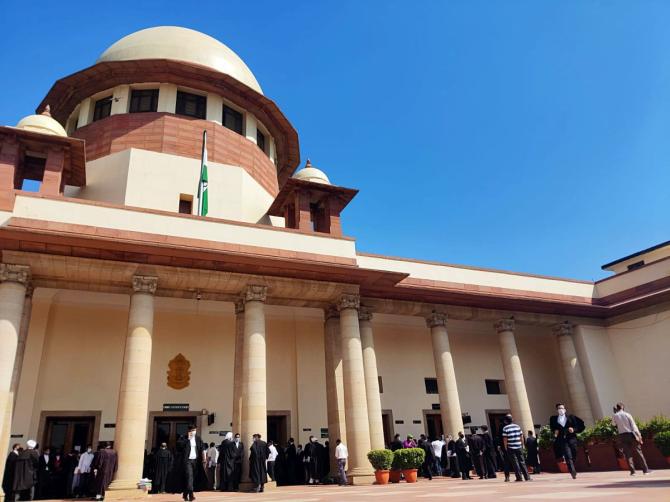
Setting aside the directions on automatic vacation of stay orders in the 2018 judgement, a five-judge constitution bench headed by Chief Justice DY Chandrachud also ruled that constitutional courts -- the Supreme Court and high courts -- should ordinarily refrain from fixing a deadline for disposal of cases by courts below.
The bench, which also comprised justices AS Oka, JB Pardiwala, Pankaj Mithal and Manoj Misra, pronounced two separate but concurring judgements in the matter.
Justice Oka wrote a 47-page judgement for himself, the CJI, Justices Pardiwala and Misra, while Justice Mithal penned a 6-page concurring verdict.
The bench said it was unable to concur with the directions issued in the 2018 judgement in which a three-judge bench had held that the interim order of stay granted by courts, including high courts, will stand vacated automatically unless specifically extended.
"We hold that there cannot be an automatic vacation of stay granted by the High Court. We do not approve the direction issued to decide all the cases in which an interim stay has been granted on a day-to-day basis within a time frame. We hold that such blanket directions cannot be issued in the exercise of the jurisdiction under Article 142 of the Constitution of India," it held.
The verdict decided two significant legal questions. The first was whether the top court, in the exercise of its jurisdiction under Article 142 of the Constitution, can order automatic vacation of all interim orders of the high courts of staying proceedings in civil and criminal cases on the expiry of a certain period.
The second issue was whether the Supreme Court can direct the high courts to decide pending cases wherein interim orders of stay of proceedings have been granted on a day-to-day basis and within a fixed period.
Answering the questions in the 'negative', the Supreme Court said, "The directions of the Court that provide for automatic vacation of the order of stay and the disposal of all cases in which a stay has been granted on a day-to-day basis virtually amount to judicial legislation.
"The jurisdiction of this Court cannot be exercised to make such a judicial legislation. Only the legislature can provide that cases of a particular category should be decided within a specific time. There are many statutes which incorporate such provisions. However, all such provisions are usually held to be directory," Justice Oka said in the verdict.
Article 142 of the Constitution empowers the top court to pass "any decree or order necessary for doing complete justice in any case or matter pending before it" across the country.
"The constitutional Courts should not normally fix a time-bound schedule for disposal of cases pending in any Court. The pattern of pendency of various categories of cases pending in every Court, including High Courts, is different. The situation at the grassroots level is better known to the judges of the concerned Courts.
"Therefore, the issue of giving out-of-turn priority to certain cases should be best left to the concerned Courts. The orders fixing the outer limit for the disposal of cases should be passed only in exceptional circumstances to meet extraordinary situations," Justice Oka said.
The apex court also said the power of the high court under Article 227 of the Constitution pertains to its power of judicial superintendence over all the courts within its jurisdiction and this will include the power to stay proceedings before such judicial forum.
"By a blanket direction in the exercise of power under Article 142 of the Constitution of India, this (Supreme) Court cannot interfere with the jurisdiction conferred on the High Court of granting interim relief by limiting its jurisdiction to pass interim orders valid only for six months at a time," it said.
Putting such constraints on the power of the high court will also amount to making a dent on its jurisdiction which is an essential feature that forms part of the "basic structure of the Constitution", it said.
The bench noted the huge pendency of cases in high courts and said everyone has different kinds of problems.
"At the same time, we cannot ignore that once the High Court stays a trial, it takes a very long time for the high court to decide the main case. To avoid any prejudice to the opposite parties, while granting ex-parte ad-interim relief without hearing the affected parties, the High Courts should normally grant ad-interim relief for a limited duration," it said.
It also referred to certain important parameters for the exercise of the jurisdiction under Article 142 of the Constitution and said, "The jurisdiction can be exercised to do complete justice between the parties before the Court. It cannot be exercised to nullify the benefits derived by a large number of litigants based on judicial orders validly passed in their favour who are not parties to the proceedings before this Court."
The verdict said Article 142 does not empower the top court to ignore the substantive rights of the litigants.
"While exercising the jurisdiction under Article 142 of the Constitution of India, this Court can always issue procedural directions to the Courts for streamlining procedural aspects and ironing out the creases in the procedural laws to ensure expeditious and timely disposal of cases.
"However, while doing so, this Court cannot affect the substantive rights of those litigants who are not parties to the case before it. The right to be heard before an adverse order is passed is not a matter of procedure but a substantive right," it said.
The top court had on December 13, 2023, reserved its judgement in the case after hearing senior advocate Rakesh Dwivedi, who appeared for the High Court Bar Association of Allahabad, Solicitor General Tushar Mehta and other lawyers on the issue.
The court had on December 1 last year referred to a five-judge bench its 2018 judgement for reconsideration.
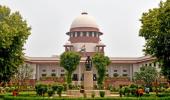
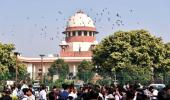

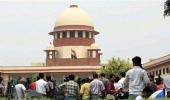




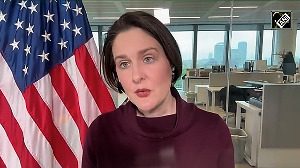


 © 2025
© 2025